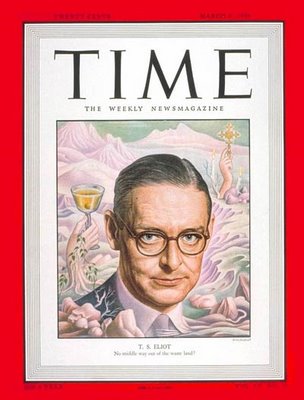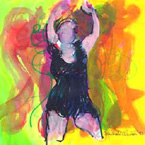
By Joe Markman
I was high but there was little to be done about it. No choice really. She came prepared and I wasn’t going to let the intoxication of my chocolate-haired friend escape my grasp. When she dropped the cold curtain between us and warmed to me, I accepted her offer of fine powder and potent sex.
She had been pacing the bedroom, taking care not to look at me. A breeze sneaking through a fracture in the room’s only window hardened her nipples. I could see them through the thin fabric of her shirt. She was pondering my statement.
“I want you.”
“You want a nimble fairy with cellophane wings.”
 She didn’t say anything for a while after that. She only paced, from wall to wall, taking in my slouched existence. When she finally moved within my reach there was no smile on her face, only a line of uncertain flesh. I grabbed her hips and kissed her smooth navel. But first the drug. A second thought passed through my mind, but not a third. We rocketed into the ozone and she jumped on me, a frenzy of long brown hair, tickling fingers, and moist excess.
She didn’t say anything for a while after that. She only paced, from wall to wall, taking in my slouched existence. When she finally moved within my reach there was no smile on her face, only a line of uncertain flesh. I grabbed her hips and kissed her smooth navel. But first the drug. A second thought passed through my mind, but not a third. We rocketed into the ozone and she jumped on me, a frenzy of long brown hair, tickling fingers, and moist excess.Days later we grew tired of sex. As for the drug, the possibilities were endless.
“Where am I?”
“You’re on a grapefruit river drinking crimson souls.”
Maybe I was. All I could see were wisps of clouds, floating along and bunching together under the tender sun. I felt her nails on my bare forearm, scratching leisurely up and down. There was only the sky, her long nails, and an infinite orgasm soothing the wrinkles of my essence.
Then I died.
“Am I dead?”
“You’re on a slug-powered roller coaster gliding over bamboo rails.”
Everything had gone dark. I saw nothing, felt nothing except for my own body. I curled into a ball in the steel-trap expanse of my mind. Time dragged and I listened for clues to my encapsulation. I heard creaking wood and liquid splashes, soft wind and the ting of metal against glass. Then a white hot light scorched my eyes.
After a moment I noticed that I could see. For the first time I saw that we were on a train. The sort of train a child might ride at the amusement part, but much bigger, with room in our open-roofed car for two strangers. The strangers faded into the background when I saw myself. I was slumped on a wooden bench, my eyes half-closed. I looked down and saw a razor blade in one porcelain hand and a mirror in the other. I was cutting a pile of white powder into two lines.
“Am I you?”
“You lead a windbreaker life, confusing all you see.”
 I looked at my own face, my nose wider than I remembered, my pores deeper, my lines older, my chin lower, my eyes full of strawberry worry. Light red lines crisscrossed the white globes resting beneath my eyelids. I was ugly and obscene. I chopped at the drug and blew a line. I collapsed and immediately found myself rousing from a twisted stupor.
I looked at my own face, my nose wider than I remembered, my pores deeper, my lines older, my chin lower, my eyes full of strawberry worry. Light red lines crisscrossed the white globes resting beneath my eyelids. I was ugly and obscene. I chopped at the drug and blew a line. I collapsed and immediately found myself rousing from a twisted stupor.Her breasts were pressed against the bottom of the car. They had slipped from her tangerine wrap when she fell. I noticed the strangers again. One was staring at her breasts like a lion at a gazelle. The other, his back straight, was making a visible effort not to look. I waded through the air toward her. Beef stew with no broth. I moved my slapping clown’s feet, my pillowcase juggernaut arms, to sit beside her. She awoke and we whispered nothings, ignoring the strangers.
“I love you.”
“You love the forest sky and my darkening heart.”
There was a raging fire inside her brain. In our youth she smiled at me, her doll’s eyes and coy lips burning my loins. We used to put together puzzles on the floor of my mother’s living room.
When we were twelve she looked into my eyes across a puzzle and traced her finger along my jaw, smiling as my face grew red. Now the smile was gone. Now she was frantic, grabbing me at odd moments and gazing into deep pools of invisible passion water.
It was lovely to sit next to her, away from everything, with two strangers and a plastic bag full of the only thing that mattered anymore. Then I took a line for myself and looked in the mirror.
My nose suited my face. I saw each unclogged pore, shallow laughter lines, a strong chin, and eyes that looked straight through it all. We whispered about the strangers and I held her shaking arms. From time to time she would pull away and then hold me twice as tight. It went like that for a while, both of us ignoring the warping sky, deciding on the strangers, deciding on ourselves.
She touched her face and shrieked. When she pulled the bag open I shook my head.
“You don’t need it.”
“You can see my crackling skin, my wicked eyes.”
I shook my head again.
“You are beautiful.”
“You can’t see my candy cane need and my rose petal trails.”

I shrugged and we went higher.
Waves of thick motion tracked her fingers as they brushed against my face. I saw her wicked eyes, her hesitant feelings, and threw myself at her orchid lips. The stiff stranger grunted and I felt the other move closer to us. We broke our embrace and looked at them with glee. I offered them the drug and they said nothing. Like it didn’t even exist.
I noticed the warping sky had finished its task when my head melted back onto the edge of our car. Black circles, edged with orange flames, appeared all across the sky. I stared in amazement and my lover stroked my arm. Wild ecstasy. The two strangers sat looking up, their mouths open wide, mumbling and glancing accusingly at us.
There was little to be done about it. So we enjoyed ourselves for a while, and just when it outgrew its novelty, the dragons came. I think there were aliens riding the dragons. But they could have been people, just like you and me, riding on fuzzy dreams. The dragons were strange, covered in a patchwork of lollipop hairs. As they dove toward the earth no fire shot from their mouths, but they swooped down right on top of us and pulled up at the last second.
The stiff stranger held his arms above his head when the dragons came, but straightened his jacket when they flew away. The other stranger howled in fear. He cursed the planet for its carnivore punishment and when I asked him what was the matter he jumped out of the car.
 It was quite the show. Exciting and tranquil and a thrashing for the nerves, but we held tight, admiring their wonderful coats and taking some of the drug when they’d gone. I asked the stiff stranger what he thought. He told me that it was a figment of his imagination, some crazy coincidence of imagery. Had they spiked his air?
It was quite the show. Exciting and tranquil and a thrashing for the nerves, but we held tight, admiring their wonderful coats and taking some of the drug when they’d gone. I asked the stiff stranger what he thought. He told me that it was a figment of his imagination, some crazy coincidence of imagery. Had they spiked his air?We laughed and told him no. It was not for strangers. But I liked the dragons and I didn’t like his answer, so I asked my Chhaya what she thought.
“What was that?”
“Nothing is real.”
Joe Markman is a journalism student at the University of Rhode Island, where he has also found time to write fiction and poetry. "A Windbreaker Life" originated as a dream. Says Markman, "Strange stuff. I took the disjointed images and turned them into a sort of skewed 'Lucy in the Sky with Diamonds' narrative."





















